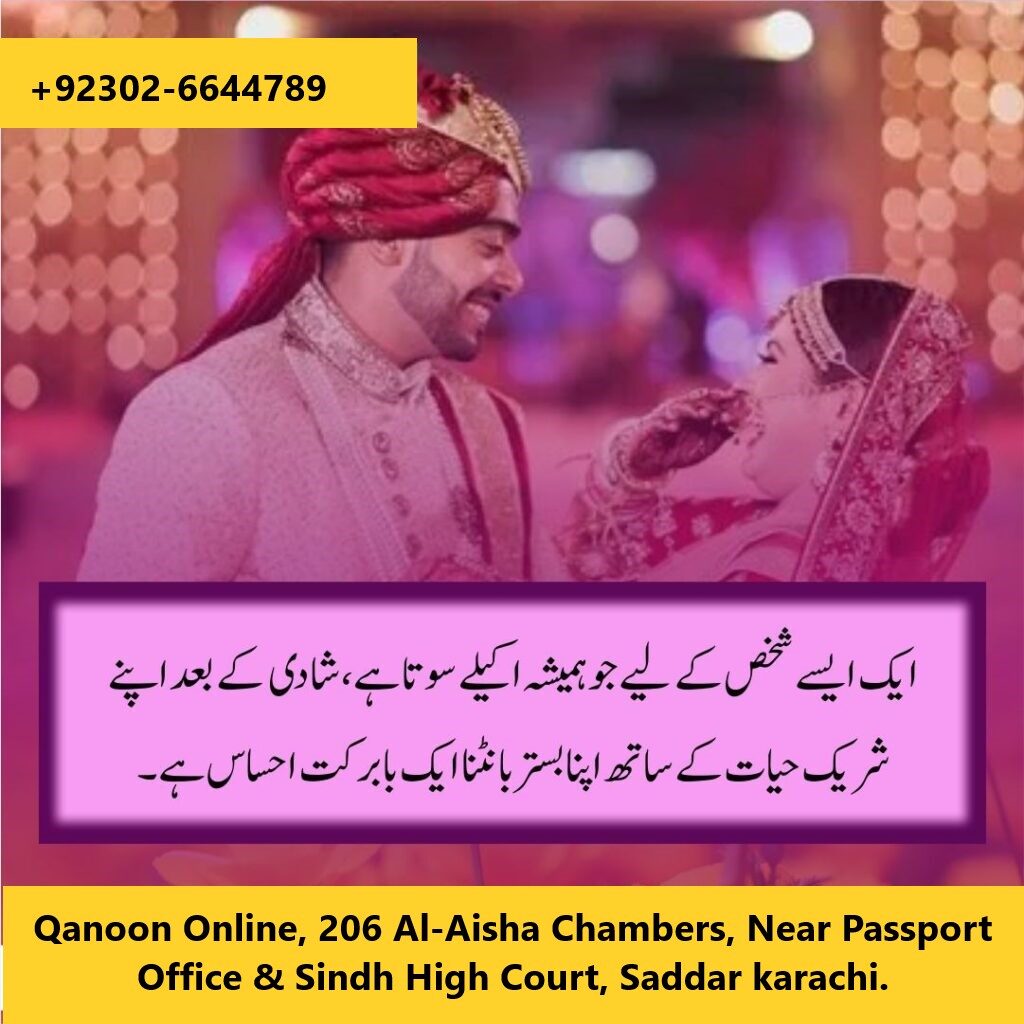- Karachi
- Lahore
- Islamabad
- Leads, UK
- Reading, UK
- Quebec, Canada
Blog BY MUH.ASFEE.ANS
Court Marriage: The Effortless Formality
Are you ready to go on a journey of love, commitment, and legal recognition? Look no further than court marriage’s effortless formality. In this fast-paced world where time is of the essence, couples have an easy and swift marriage process. Court marriage, or nikah, as it is known in Arabic, is a simple legal procedure that can be completed within days. This article will explore the complete details of court marriage in India- from its registration process to the required documents. Increasingly turn to court marriage as an inexpensive and efficient way to solemnize their union. No longer are the days of prolonged waiting periods and endless paperwork; today’s couples can say “I do” in no time. Join us as we explore the seamless process of court marriage, from minimal waiting periods to painless documentation preparation. Get ready for an experience that combines tradition with modern convenience – it’s time to discover the joy of a swift court marriage!
Minimal Waiting Period: Swift Path to Saying “I Do”
Planning a wedding can be exciting and time-consuming. Countless details exist, from selecting the right venue to finalizing the guest list. However, for couples seeking a quick and hassle-free way to tie the knot, court marriage offers an easy path to saying “I do.”
Unlike traditional weddings that often require months of preparation and coordination, court marriages have minimal waiting periods. In many jurisdictions, couples can obtain a marriage license within days or hours of application submission. This means that once you’ve decided to get married, there’s no need to wait endlessly for your special day.

Streamlined Process of Court Marriage
The streamlined process of court marriage is designed with efficiency in mind. Couples must gather the necessary documentation – such as identification cards, proof of residence, and birth certificates – and submit them to the designated government office. With everything in order, you’ll be on the fast track to legal matrimony.
One of the advantages of opting for court marriage is its simplicity. Instead of dealing with elaborate ceremonies and multiple vendors, couples can focus on what truly matters: their commitment to each other. By eliminating unnecessary frills and formalities, court marriages offer a straightforward approach that embraces practicality without compromising love or significance.
Court Marriage is Affordable
In addition to its convenient timeline, another benefit of choosing court marriage is its affordability. Traditional weddings often come with hefty price tags due to expenses like venue rentals, catering services, and decorations.
However, court marriages typically involve lower costs as they don’t require extravagant venues or extensive guest lists.
When legalizing your union, financial constraints need not stand in your way; you can start building your life together without breaking the bank.
With minimal waiting periods, fewer logistical challenges, and reduced financial burden, court marriages offer a swift path toward saying “I do.” Whether you’re planning an intimate celebration or want a fuss-free alternative, the convenience, and ease provided by this legal process make it an appealing option for couples who value efficiency and practicality.
Preparing Documentation: Paperwork Made Painless
Preparing Documentation: Paperwork Made Painless
Marriage paperwork is often tedious and time-consuming. However, court marriages offer a swift and hassle-free path for couples who want to tie the knot without fuss. One of the critical aspects of this streamlined process is preparing the necessary documentation.
To begin with, both parties need to gather their identification documents, such as passports or national identity cards. These documents serve as proof of identity and are essential for establishing legal status during court marriage proceedings. Additionally, couples will also need to provide two passport-sized photographs of each.
Next, obtaining an affidavit stating that both individuals are eligible for marriage under applicable laws is crucial. This document attests that no legal impediments or existing marriages hinder their union. The affidavit can be obtained from a notary public or a local court.
In addition to personal documents, couples may need additional paperwork depending on their specific circumstances and requirements set by local laws. For instance, if one or both parties were previously married and divorced, they will likely need to present divorce certificates as evidence of their marital status.
Once all the necessary documentation is in order, it’s time for couples to schedule an appointment at the designated court where they wish to have their marriage registered. During this appointment, they will meet with a registrar who oversees the proceedings and ensures everything runs smoothly.
By following these steps diligently and having all required documents ready, couples can ensure that paperwork becomes painless rather than burdensome when embarking on their journey towards matrimony through court marriage.
Remember, preparation is vital! Staying organized and proactive throughout the documentation process ensures your court marriage runs seamlessly without unnecessary delays or complications.
Seamless Transition: Integrating Legal Status into Life
Seamless Transition: Integrating Legal Status into Your Life
Once you’ve completed the swift court marriage process, it’s time to seamlessly transition your legal status into your everyday life. Whether planning a small wedding ceremony or opting for a simple nikah, obtaining legal recognition for your union is essential.
One of the critical advantages of court marriage is its efficiency in integrating your legal status into various aspects of life. From opening joint bank accounts to purchasing property, having an officially recognized relationship simplifies these processes. It ensures that both partners are entitled to equal rights and benefits under the law.
Moreover, a court marriage provides legitimacy to children born within the union. The law protects Their rights and inheritance, granting them security and stability throughout their lives.
In addition to financial matters, integrated legal status extends to healthcare decisions. With a court marriage, couples have the authority to make medical decisions on behalf of their spouse if necessary. This eliminates potential conflicts or uncertainties when quick decision-making is crucial in critical situations.
Furthermore, court marriage allows couples access to social welfare programs provided by government entities or employers. These programs often offer health insurance coverage and retirement plans that significantly contribute to a couple’s well-being and future financial security.

Court Marriages Respect Individuals
Integrating legal status into daily life doesn’t mean sacrificing personal beliefs or cultural traditions. Court marriages respect individuals’ freedom of religion and allow for ceremonies and rituals customary within one’s faith or culture while ensuring compliance with applicable laws.
By embracing the swift process of court marriage, couples can effortlessly navigate through different life phases without unnecessary complications or delays caused by a lack of legal recognition. Knowing that your commitment has been validated legally while maintaining authenticity according to individual preferences brings peace of mind.
Navigating Legal Channels: Initial Steps in Court Marriage
The journey of court marriage begins with understanding the legal requisites. Unlike the traditional path, court marriage allows couples to bypass elaborate ceremonies and focus on the essentials. The initial steps involve preparing the necessary documents, typically proof of age, address, identity, and a passport-sized photograph. The straightforward nature of these requirements sets the tone for Court Marriage’s swift process.
Preparing Documentation: Paperwork Made Painless
Document submission is a fundamental aspect of court marriage. The involved paperwork may vary by jurisdiction, but the process remains remarkably straightforward. Gather your documents, verify their accuracy, and submit them to the appropriate authorities. This emphasis on essential paperwork rather than grand arrangements makes court marriages swift and efficient.

Appointment and Verification: Streamlining the Process
Once the documentation is in order, the next step is to schedule an appointment at the marriage registration office. The process often involves a brief interview where the couple’s information is verified. The verification step ensures that legal formalities are met and the marriage is swift and legitimate.
Scheduling the Date: Convenience at Your Fingertips
One of the remarkable advantages of court marriage is the flexibility in choosing the marriage date. This convenience allows couples to plan their legal union at a time that suits their schedules. Court Marriage prioritizes your convenience over traditional ceremonies, which astrological or cultural considerations may influence.
Witnessing the Union: Essential Roles and Responsibilities
During the Court Marriage process, witnesses play a crucial role. These witnesses, often close friends or family members, must be present during the marriage registration. Their presence is a testament to the union’s authenticity and underscores the event’s legal significance.
Vows and Validation: Making Your Commitment Official
In the presence of witnesses and legal authorities, couples exchange vows and sign the marriage certificate. This pivotal moment marks the official recognition of your commitment and partnership by the law. The simplicity of this process encapsulates the essence of Court Marriage – a promise made effortlessly yet with legal validation.
Legal Significance: Understanding the Marriage Certificate
The marriage certificate issued after a Court Marriage holds immense legal significance. It acts as proof of the legally recognized union, offering couples a host of rights and responsibilities that come with legal marriage. This certificate, recognized by law, ensures your commitment is heartfelt and officially acknowledged.
Post-Marriage Formalities: Ensuring All Is Complete
Following the Court Marriage ceremony, couples must complete a few post-marriage formalities. These may include obtaining multiple copies of the marriage certificate and updating marital status in official records. While these steps are necessary, they are far less burdensome than the extensive rituals associated with traditional weddings.
Seamless Transition: Integrating Legal Status into Life
The swift process of Court Marriage results in a seamless transition from being partners to legally recognized spouses. This transition allows couples to focus on building their life together without being entangled in the complexities often associated with elaborate ceremonies. Court Marriage is a testament to the changing dynamics of relationships in our fast-paced world. It offers a swift and efficient process prioritizing legal recognition and partnership over extravagant ceremonies. By simplifying the process, Court Marriage empowers couples to readily embrace their commitment, making their union official and indeed their own. Whether it’s a choice born out of convenience or a desire for modernity, Court Marriage’s swift process undoubtedly resonates with today’s generation, reaffirming that love knows no bounds and legalizing it can be an effortless formality.
Legal Services
- Divorce Law
- Child Custody
- Family Law
- Financial Law
- Civil Legalation
Syed mohsin Ali Shah
Phone : +92316-6644789
Let's Connect
- 0333-1127831
- [email protected]
- M-51, M-52, Muneer Mobile Mall, Near Perfume Chowk Jauhar Chowrangi, Block 17, Gulistan-e-Jauhar, Karachi, Pakistan.
- Suite No. 5, 2nd Floor, Laraib Centre, Mangla Road, Karachi Company, G-9 Markaz, Islamabad Pakistan
The Legal Process of Court Marriage
Court marriage is a legal way for couples to solemnize their union without any unnecessary social formalities. The court marriage procedure in Pakistan involves a few simple steps that make it an attractive option for many couples.
Identity Proof: First, the couple needs to obtain and fill out the application form available at the local registrar’s office.
Documents: They must provide necessary documents such as identity cards, photographs, and proof of age.
Additional Requirements: After submitting the application form along with all required documents, the couple will be given a date for their court marriage ceremony. On the assigned day, they appear before a judge in the family court along with two witnesses who can attest to their identities and consent for marriage. The judge then performs the nikah ceremony and issues a certificate declaring them legally married
